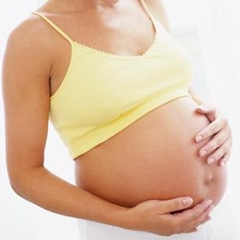 The payment to women donating their eggs for use in IVF will triple from £250 to £750 tomorrow. The extra money on offer is said to have led to five-fold increase in women approaching clinics to donate their eggs to infertile couples.
The payment to women donating their eggs for use in IVF will triple from £250 to £750 tomorrow. The extra money on offer is said to have led to five-fold increase in women approaching clinics to donate their eggs to infertile couples.
The recession will only further help fuel the rise in the number of women coming forward, campaigners claimed last night. Joyce Robbins of the Patient Concern group said: ‘For many women, £750 is worth having, especially if you are wondering how you are going to pay the mortgage.
‘Increasing these payments will tempt the hard up, but women should give it proper thought.’ Last October, the Human Fertilisation and Embryology Authority decided that the compensation payment for women donating their eggs for IVF should be increased, bringing it into line with countries such as Spain.
Until now there has been a payment cap of £250 for egg donors per cycle of treatment. Under the change, egg donors will be given free treatment to retrieve the eggs plus a payment of £750 per cycle, no matter how many eggs are collected. As more women delay having children until their late 30s and 40s, demand for donor eggs is increasing.
A woman in her early 40s has less than a ten per cent chance of having a baby through IVF using her own eggs, compared with a 50 per cent chance using the eggs of a young woman.
Britain has a chronic shortage of egg donors, with some clinics reporting a four-year waiting list. Campaigns alerting women to the change in payment have prompted a significant rise in the number of potential donors.
CARE Fertility, which runs private IVF clinics across the country, said interest has increased five-fold, while Midland Fertility Services has seen a ‘noticeable increase’ and the National Gamete Donation Trust a doubling in inquiries.
Dr Simon Thornton, medical director at CARE Fertility, said clinics were ‘delighted with the response’ but added not all women who inquire will end up being donors.
He added: ‘Hopefully this change will reset the balance nationally so the requirement for donor eggs is going to match availability and waiting lists will come down.’ Dr Gillian Lockwood, of Midland Fertility Services, said: ‘Most women donate eggs because they have experienced infertility themselves or know someone who has.
‘The increase in compensation is recognition that donors go through a lot. There is extensive counselling and scrutiny, and the average donor cycle could involve six to eight visits to a clinic, daily injections, vaginal scans and some discomfort for the egg retrieval itself.
‘Early counselling sessions would quickly identify women who were doing it purely for the money.’ A law change in 2005 means any child born from donor eggs or sperm can trace their biological parent when they reach 18.
Article: 30th March www.dailymail.co.uk
Looking for an egg donor? search profiles and photos, click here